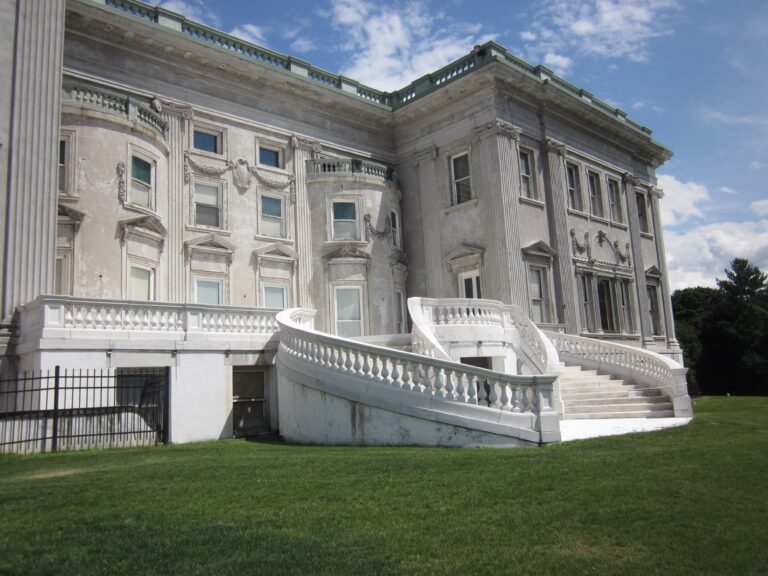Is It Wise to Invest in Property in South Africa
Is It Wise to Invest in Property in South Africa?
Investing in property has always been a popular choice for those seeking long-term financial security. However, when it comes to deciding where to invest, South Africa has emerged as a compelling option for savvy investors. As an aspiring property investor, it is crucial to evaluate the pros and cons of any potential venture. In this article, we will impartially explore the current state of the South African real estate market, highlighting key factors to help you make an informed decision on whether investing in property in South Africa is truly wise. So, buckle up as we delve into the intricacies of this booming market and uncover whether it spells profit or peril for potential investors.
Table of Contents
- The Pros and Cons of Investing in Property in South Africa
- The Current State of the South African Property Market
- Factors to Consider Before Investing in South African Real Estate
- Risks and Challenges Faced by Property Investors in South Africa
- Recommended Strategies for Successful Property Investment in South Africa
- FAQs
- Wrapping Up

The Pros and Cons of Investing in Property in South Africa
Investing in property in South Africa presents several advantages worth considering:
- Appreciation potential: One of the major benefits of property investment is the potential for long-term appreciation, providing opportunities to make substantial profits in the future.
- Rental income: Owning a property in South Africa can generate rental income, allowing investors to enjoy a steady cash flow and potentially cover mortgage payments or costs associated with property management.
- Diversification: Property investment offers diversification in an investment portfolio, reducing risks by spreading investments across different asset classes.
- Tax advantages: Investors in South African property can benefit from various tax deductions, such as deducting mortgage interest, property insurance, and maintenance expenses from their rental income, potentially lowering their overall tax liability.
- Thriving tourism: South Africa attracts numerous tourists each year, offering a potentially high demand for short-term rental properties, further increasing income opportunities for property investors.
The Cons of Investing in Property in South Africa
While there are numerous advantages, it’s crucial to consider the potential drawbacks before investing in property in South Africa:
- Economic risks: South Africa’s economy can be subject to volatility and uncertainties, which may impact property values and investor returns.
- Legal complexities: Navigating the legal framework, acquiring necessary permits, and understanding property regulations can be complex and time-consuming for foreign investors.
- Market fluctuations: Property markets can experience fluctuations, and it’s essential to carefully analyze market trends and be prepared for potential periods of slower growth or even declines in property values.
- Foreign exchange risk: Investing in property in South Africa involves exposure to currency fluctuations, which may impact the value of investments and repatriation of funds.
- Maintenance and management: Property ownership requires ongoing maintenance, management, and associated costs, which should be factored into the overall investment strategy.
The Current State of the South African Property Market
The South African property market is experiencing a mix of challenges and opportunities in the current economic climate. It is essential for buyers, sellers, and investors to understand the prevailing conditions to make informed decisions.
Challenges:
- Uncertain economic outlook: The South African property market is influenced by the overall state of the economy. Prolonged economic stagnation, slow GDP growth, and high unemployment rates have dampened consumer confidence and affected property demand.
- Inflationary pressures: Rising inflation can impact the property market, affecting the cost of construction, maintenance, and ultimately property prices. It also affects disposable incomes and affordability for potential buyers.
- Infrastructure limitations: Insufficient infrastructure development can hinder property market growth. Issues such as inadequate transportation networks, unreliable utilities, and limited access to essential services can deter potential investors.
Opportunities:
- Low interest rates: The current low interest rate environment presents favorable conditions for property buyers, as it reduces the cost of borrowing. This can increase affordability and stimulate demand in the market.
- Government initiatives: South African authorities have implemented various programs to promote affordable housing and stimulate the property market. These initiatives aim to address housing shortages and provide opportunities for both buyers and investors.
- Urbanization and population growth: The ongoing trend of urbanization and population growth presents opportunities in the property market. Rising demand for housing, retail spaces, and other real estate assets in urban areas can attract investors looking to capitalize on these trends.

Factors to Consider Before Investing in South African Real Estate
Investing in South African real estate can be a lucrative opportunity, but it’s important to carefully consider certain factors before taking the plunge. Firstly, you need to analyze the current market trends and economic conditions in South Africa. Look at factors such as interest rates, inflation, and the overall stability of the country’s economy. This will help you gauge the potential for return on investment and assess the level of risk involved.
Another crucial factor to consider is the location of the property. South Africa is a diverse country with various cities and regions, each offering different investment potentials. Research the local real estate market in the area you’re interested in. Consider the demand for properties, rental yields, and any upcoming developments or infrastructure projects in the vicinity. Additionally, evaluate the proximity to amenities such as schools, shopping centers, and transportation links, as these can greatly impact the property’s appeal to potential tenants or buyers.
Furthermore, it’s essential to thoroughly assess the legal and regulatory landscape of investing in South African real estate. Familiarize yourself with property laws, foreign ownership restrictions, and any taxes or fees associated with property transactions. Engaging with a reputable local lawyer or real estate agency can prove invaluable in navigating these complexities and ensuring a smooth investment process.
In summary, to make an informed decision before investing in South African real estate, carefully analyze the current market conditions, consider the location and its potential for growth, and fully understand the legal and regulatory environment. Keeping these factors in mind will help you mitigate risks and maximize your chances of a successful investment in the dynamic South African real estate market.
Risks and Challenges Faced by Property Investors in South Africa
When it comes to property investment in South Africa, there are a number of risks and challenges that investors need to be aware of. It is important to thoroughly understand these potential obstacles in order to make informed decisions and mitigate any potential losses.
One of the main risks faced by property investors in South Africa is economic volatility. The country has experienced periods of instability, which can have a direct impact on the property market. Fluctuating interest rates, inflation, and political uncertainties can all contribute to an uncertain investment climate. It is crucial for investors to closely monitor economic indicators and market trends to make educated decisions.
Another challenge is the potential for property market oversupply. It is not uncommon for certain areas to experience a boom in property development, resulting in an excess of supply. This oversupply can lead to increased competition among property investors, resulting in lower rental yields and longer vacancy periods. Investors should carefully research the local market and seek areas with a balanced supply and demand equilibrium.
Additionally, property investors in South Africa should be mindful of legislative and regulatory changes. Laws pertaining to property ownership, taxation, and landlord-tenant relationships can evolve over time. Staying up-to-date with these changing regulations is essential to avoid potential legal and financial pitfalls.
Lastly, security issues can pose a challenge to property investors. South Africa has faced concerns regarding crime rates and safety, which can impact the desirability and value of certain properties. Conducting thorough due diligence on the security measures in place within an area and investing in secure properties can help mitigate these risks.
Overall, property investors in South Africa need to be aware of the risks and challenges inherent to the market. By staying informed, conducting careful research, and implementing risk mitigation strategies, investors can navigate these obstacles and find success in their property investment ventures.
Recommended Strategies for Successful Property Investment in South Africa
- Research and Analyze: Before diving into any property investment, it is crucial to thoroughly research and analyze the market conditions in South Africa. Understand the current property trends, market demand, rental rates, and potential growth areas. This will enable you to make informed decisions and maximize your chances of generating healthy returns.
- Location is Key: South Africa offers a diverse range of locations to invest in, each with its own dynamics. Choose a location that aligns with your investment goals and target audience. Consider proximity to amenities, transportation links, and the potential for future development. A well-chosen location can significantly impact the property’s value and rental yield.
- Partner with Professionals: Investing in property can be complex, especially when navigating a foreign market. Engaging with experienced professionals can help you navigate potential pitfalls and ensure smooth operations. Seek guidance from local real estate agents, property managers, and legal advisors who understand the South African property landscape.
- Financial Planning: Plan your finances carefully to ensure a successful property investment. Set a realistic budget, including purchase costs, ongoing maintenance, and management fees. Consider obtaining mortgage pre-approval to have a clear understanding of your borrowing power. Additionally, factor in potential vacancies and unforeseen expenses to ensure you can weather any potential storms.
- Property Management: Effective property management is essential for a successful investment. Consider partnering with a reputable property management company to handle day-to-day operations, tenant screening, rent collection, and property maintenance. This will save you time and ensure your investment remains profitable, even in your absence. Regularly review and assess the performance of your property manager to ensure they are meeting your expectations.
Investing in property can be a lucrative venture in South Africa, but a well-thought-out approach is crucial. Research the market, choose the right location, and seek professional guidance to make informed decisions. Careful financial planning and engaging a trusted property management company will help protect your investment and ensure it remains profitable for the long term. Remember, property investment is a journey, so stay informed, adapt to market conditions, and remain proactive throughout the process. With the right strategies in place, you can navigate the South African property market successfully and reap the rewards.
FAQs
Q: Is it wise to invest in property in South Africa?
A: Investing in property in South Africa can be a profitable decision, but it also comes with risks and considerations to keep in mind.
Q: What factors make South Africa a potentially good investment for property?
A: South Africa offers a variety of attractive factors for property investment, such as a stable legal system, a growing economy, cultural diversity, and a beautiful landscape.
Q: What are the risks associated with property investment in South Africa?
A: Risks include fluctuating property prices, potential property market instability, the possibility of rental income fluctuations, and the need to monitor economic and political conditions.
Q: Are there any legal aspects one should be aware of before investing in property in South Africa?
A: Yes, it is crucial to familiarize yourself with South African property laws, regulations, and procedures before investing to ensure compliance and protect your investment.
Q: What types of properties are popular for investment in South Africa?
A: Popular property investment options in South Africa include residential properties (houses, apartments), commercial properties (offices, retail spaces), and vacation properties.
Q: Are there any specific regions in South Africa that are considered more favorable for property investment?
A: Certain areas like Cape Town, Johannesburg, and Durban are generally more sought-after for property investment due to high demand and potential rental returns.
Q: Should I invest in residential or commercial properties in South Africa?
A: Choosing between residential or commercial properties depends on your investment goals and risk appetite. Residential properties usually offer stable long-term returns, while commercial properties may yield higher but riskier returns.
Q: Is it possible for foreign investors to buy property in South Africa?
A: Yes, foreign investors are permitted to buy property in South Africa, subject to certain conditions and restrictions outlined by the South African Reserve Bank.
Q: What are the financing options available for property investment in South Africa?
A: Financing options include obtaining a mortgage from a South African bank or using offshore funds. It is advisable to consult with a financial professional to explore the best option for your circumstances.
Q: How can I ensure a successful property investment in South Africa?
A: Conduct thorough research, seek professional advice, and consider partnering with local experts to navigate the local market dynamics and ensure a successful property investment in South Africa.
Final Thoughts
In conclusion, the question of whether it is wise to invest in property in South Africa has no definite answer. It all depends on various factors such as your risk appetite, financial goals, and market conditions. While the country offers a diverse and potentially lucrative real estate market, there are also challenges and risks to consider.
On one hand, South Africa boasts stunning natural beauty, a growing middle class, and a favorable climate for property investment. Demand for housing is high, particularly in urban areas, which can translate into excellent rental yields or future resale value. Additionally, the government has implemented measures to attract foreign investors, which may provide additional opportunities for growth.
On the other hand, there are inherent risks associated with investing in any market, and South Africa is no exception. The country faces socio-economic challenges, such as high unemployment rates and income inequality, which can impact the property market. Political stability and policy decisions also play a significant role in determining the viability of investment.
Therefore, potential investors must carefully assess their own circumstances and conduct thorough research before making any decision. Consult with local experts, consider the market trends, and evaluate the potential risks involved. By doing so, you can make an informed choice that aligns with your investment objectives.
Ultimately, investing in property in South Africa can be a rewarding venture for those who are patient, well-informed, and willing to navigate the complexities of the market. As with any investment, there are no guarantees, and it is important to approach it with caution.







